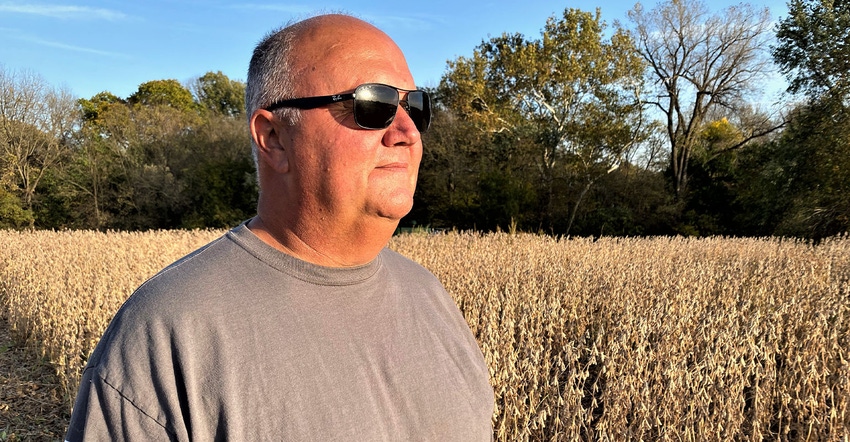
Soybean grower Tim Mershon understands the benefits of the industry's first triple-stacked soybean trait containing tolerance to dicamba, glyphosate, and glufosinate.
He was one of the participants in Bayer's Asgrow XtendFlex Stewardship introduction program, testing their new product on his farm in Buckner, Mo. Asgrow XtendFlex soybeans are now available for the 2021 planting season.
Using XtendFlex in 2020
Mershon Farm experienced good soybean and corn yields in 2020.
"Our soybeans were surprisingly good for the dry times that we had this season," Mershon said. "I was fortunate enough to be able to put all our soybean acres into the stewardship program, which was 1,250 acres of soybeans. I was interested in the triple-stacked soybean trait aspect of the new XtendFlex technology. I have had some neighbors that raise soybeans that are resistant to glufosinate, so we had a couple of issues where we had some drift damage in the past. It was nothing major, but it just looked bad."
Mershon said that seed technology gave him more flexibility when spraying the fields.
"We could go spray a field, and the next day we could put glufosinate in the tank with Roundup and go spray something else," he said. "Then the next day go back to spraying Roundup and dicamba. Being able to go back and forth was much more convenient.
"Also, there are two farms with soybeans on three sides of my farm, and there's no way you're ever going to get the wind to be in the right direction to spray fields, so I was lucky this program came along when it did.
"I'm a big believer in sharing with my neighbors and friends on anything new and exciting that has been working for my farm, so we can all be as successful as possible. So far, this technology has been a good addition to my operation."
Mershon Farm
Mershon started farming in 1987 on his family's farm.
"My brother, sister, and I were fortunate enough to buy the farm from our family to continue to keep up the farmland. I raise corn and soybeans on about 2,200 acres total," Mershon said.
"Our family owns and manages a large cattle herd. When I'm not farming, I am taking care of the cattle alongside my brother."
The row crop farm is completely no-till for all their soybean ground.
"We try to get out early in the season to do our burn down with Roundup and dicamba, and we use a good residual with that," Mershon said. "This past season was a little bit dry in June, which was a bit worrisome, but the soybeans kept growing and did well. Also, it started raining in July, and we got 19 inches of rain over the month, which is an unheard-of amount of rain for us at that time of the year."
In August, they experienced another dry spell, but the crops held up despite the fluctuating weather conditions.
"Our yields probably weren't the highest we've ever had for soybeans on the farm, but it was close, which is pretty exciting from where our yields were when I started farming," Mershon said.
"The newer soybeans have good disease tolerance, and the added flexibility of switching back and forth between a few different herbicides to help control the weeds has made my life a whole lot easier."
About the Author(s)
You May Also Like




